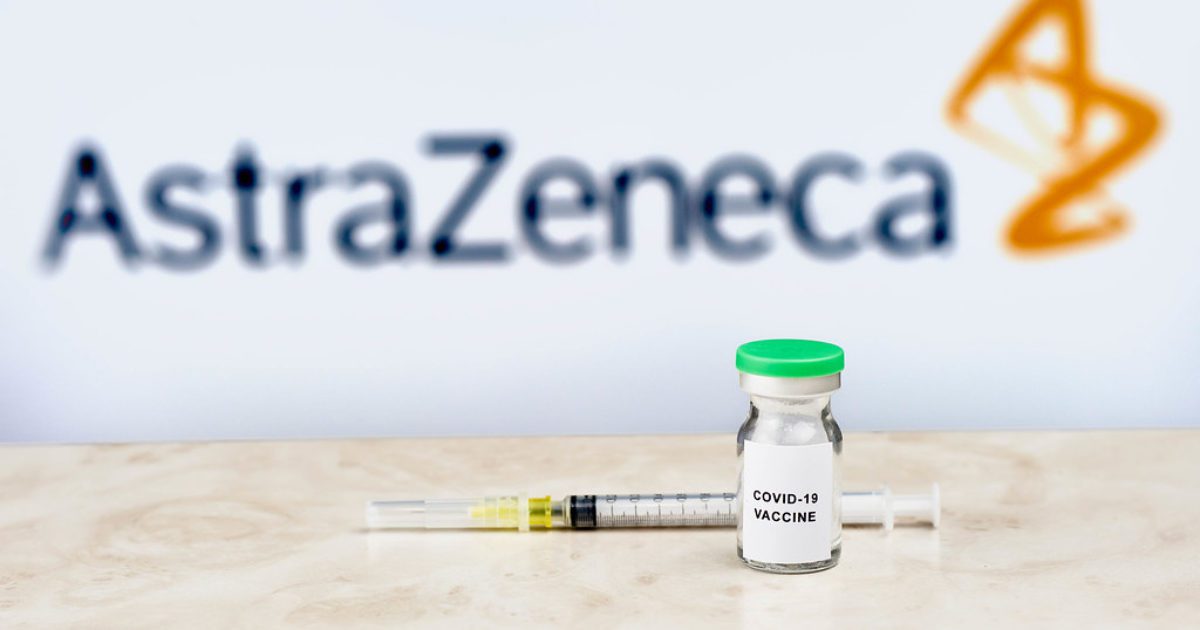The AstraZeneca COVID-19 jab’s Trojan horse delivery system appears to be responsible for an increased rate of Guillain-Barré syndrome and other neurological issues.
“Scientists at University College London (UCL) have found a rise in cases of GBS in the first two to four weeks after the AstraZeneca vaccine,” The Telegraph reports.
The experimental shot utilizes a chimpanzee adenovirus vector to deliver the coronavirus spike protein into the body, and scientists have speculated that a reaction to adenovirus may be responsible for the rise in cases.
Researchers now believe this chimp component is responsible for causing GBS, a rare disorder where the body’s immune system damages nerves.
💉 The AstraZeneca vaccine may increase the risk of the serious neurological condition Guillain-Barré syndrome with the jab’s Trojan horse delivery system possibly to blame, scientists believe, in a discovery which may apply to similar vaccineshttps://t.co/EtEe2d73om
— The Telegraph (@Telegraph) May 28, 2022
NEW – AstraZeneca vaccine: Jab’s Trojan horse delivery system could be causing a rise in Guillain-Barré syndrome cases.https://t.co/V72ED5vuae
— Disclose.tv (@disclosetv) May 28, 2022
Researchers at the University College London have confirmed a rise in cases of Guillain-Barre syndrome, a potentially fatal neurological disorder, following inoculation with the AstraZeneca vaccine. https://t.co/LyvGxxnu9I
— Keean Bexte (@TheRealKeean) June 1, 2022
From The Telegraph:
Adenovirus usually causes the common cold, but scientists are starting to think it may also mimic human cells in a similar way to Campylobacter, confusing the immune system into attacking the body.
Lead author Prof Michael Lunn (UCL Queen Square Institute of Neurology) said: “At the moment we don’t know why a vaccine may cause these very small rises in GBS.
“It may be that a non-specific immune activation in susceptible individuals occurs, but if that were the case similar risks might apply to all vaccine types.
“It is therefore logical to suggest that the simian adenovirus vector, often used to develop vaccines, including AstraZeneca’s, may account for the increased risk.”
“At the moment, we don’t know why a vaccine may cause these very small rises in GBS,” said Prof. Michael Lunn, the study’s lead author from the UCL Queen Square Institute of Neurology.
“It may be that a non-specific immune activation in susceptible individuals occurs, but if that were the case similar risks might apply to all vaccine types. It is therefore logical to suggest that the simian adenovirus vector, often used to develop vaccines, including AstraZeneca’s, may account for the increased risk.”
As Natural News noted, data suggests the Johnson & Johnson COVID-19 jab also raises GBS risk:
It appears as though the Johnson & Johnson (Janssen) jab is also linked to GBS. It turns out that both the Janssen and AstraZeneca jab are made using the same adenovirus technology.
“We know that Pfizer and Moderna don’t cause BDS but Johnson & Johnson and AstraZeneca do and the only commonality link is an adenovirus vector,” Prof. Lunn added.
“Johnson & Johnson is not the same one because they use a human adenovirus but it’s similar and the implications are broad because adenoviruses are used in quite a lot of vaccines and genetic therapies. The benefits from these vaccines and drugs are huge and the risk is tiny and there aren’t that many viral vectors you can use, but it’s good that the public are aware of the risks.”
“And theoretically, if we know what virus is causing GBS, we can turn it off and we might be able to prevent disease progression.”



Join the conversation!
Please share your thoughts about this article below. We value your opinions, and would love to see you add to the discussion!